
Dr Bahijja Raimi-Abraham
Senior Lecturer in Pharmaceutics
Research interests
- Pharmacy
Biography
Dr Bahijja Raimi-Abraham is pharmacist, Senior Lecturer in Pharmaceutics at King’s College London, Founder and Academic Lead of King’s College London Fight the Fakes and Pharmacy Working Group Lead for the African Diaspora Malaria Initiative. She leads her research group 'The Raimi-Abraham Group' where her primary research focus is on addressing pharmaceutical challenges in infectious diseases.
Dr Raimi-Abraham is the first graduate of the University of East Anglia School of Pharmacy to be awarded a PhD, the 2018 recipient of the Outstanding Woman in STEM Precious Award and the 2022 Academy of Pharmaceutical Sciences of Great Britain (APS) Emerging Scientist Award.
Dr Raimi-Abraham is the FIPWiSE (International Pharmaceutical Federation Women in Science and Education) Chair, serves as an APS Board Member and a Scientific Advisor to Daye.
Before her current position at King's, Dr Raimi-Abraham held positions at University College London (UCL) as an Engineering and Physical Sciences Research Council (EPSRC) postdoctoral researcher position and at the European Medicines Agency (EMA) as a seconded Quality National Expert.
Dr Raimi-Abraham has an extensive and original public engagement and media portfolio which includes uniquely exploring the use of street art to engage the public with Science, Technology, Engineering and Mathematics (STEM) and TEDx talk (TEDx Talk title 'Elements of Change: Becoming an Independent Researcher').
Dr Raimi-Abraham is passionate about promoting pharmacy and pharmaceutical sciences to the public and wider communities for example working with BBC News Africa on their campaign to raise awareness on the impact of fake medicines in Africa “How can you tell the difference between real and fake medicines? ”, “Spotting fake medicines with your mobile phone”, “ BBC News – People Fixing the World” (produced by Hannah Gelbart), invited to contribute to the International Pharmaceutical Federation (FIP) Wise (Women in Science and Education) Words with a focus on the theme Women Shaping Pharmaceutical Sciences series and as a consultant the 'Go and No-go pills' Somerset House 24/7 exhibition, visited by ~35,000 people (October 2019 – February 2020). Dr Raimi-Abraham is also actively involved in a number of outreach activities, such as giving presentations at schools.
Dr Raimi-Abraham’s passion projects include her start-up Scientifically Speaking and Monday Science (selected in the top 25 Best UK Science Podcast by FeedSpot and recently listed on Amazon Music’s Best Podcast of Week), a podcast which discusses the latest in Science, Health and Technology.
Social Media
Twitter, Instagram and TikTok - @DrBahijjaRaimiA
LinkedIn - https://www.linkedin.com/in/drbahijjaraimiabraham/
King’s College London Website - https://www.kcl.ac.uk/people/bahijja-raimi-abraham
The Raimi-Abraham Group Website - https://www.theraimiabrahamgroup.com/ (social media details available via website)
Research
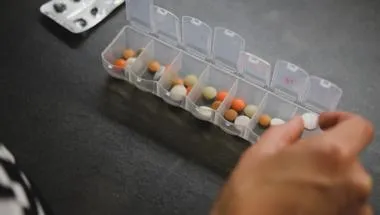
Medicines Development
The Medicines Development Research Group develops novel materials, formulations, drug delivery devices, manufacturing, analytical, and digital technologies.
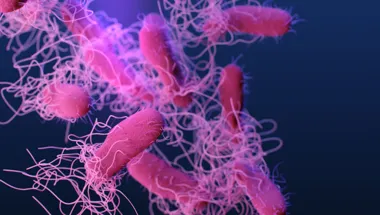
Antimicrobial Research Theme
Antimicrobial Research Theme
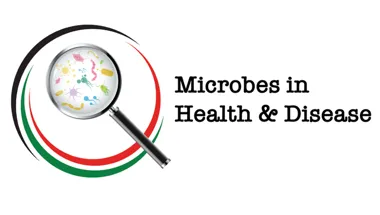
Microbes in Health & Disease
The Microbes in Health & Diseases Research Interest Group aims to foster collaboration across departments and faculties at KCL to explore the multifaceted role microbes play in health and disease.

School of Cancer & Pharmaceutical Sciences: People and Culture
The School of Cancer and Pharmaceutical Science People and Culture committee is committed to fostering an equitable, diverse, and inclusive research and education environment, where everyone can thrive. We strive to support and empower members of our community, by promoting accessibility, representation, and a culture of belonging. Through advocacy, education, and meaningful action, we aim to remove barriers, address systemic inequities, and create opportunities for our whole community to contribute and succeed

Translational Research & Innovation in Microbial Sciences (TRIMS) - King’s Prize Doctoral Programme
This PhD programme is designed to tackle microbial challenges through cutting-edge technological innovation, fundamental and applied science with translational impact.

Organoids Research Interest Group (ORIG)
Organoids are 3D, miniature versions of organs grown from stem cells. They replicate organ structure and function, making them essential for studying tissue homeostasis, disease mechanisms, and developing new therapies. This research interest group encompasses all organoid-related research at King’s College London.
News
Mini liver model innovations promise more effective drug testing
A laboratory-grown mini liver model uniquely created with liver cells and a synthetic nanoscaffold has shown to be effective in mimicking the liver, promising...
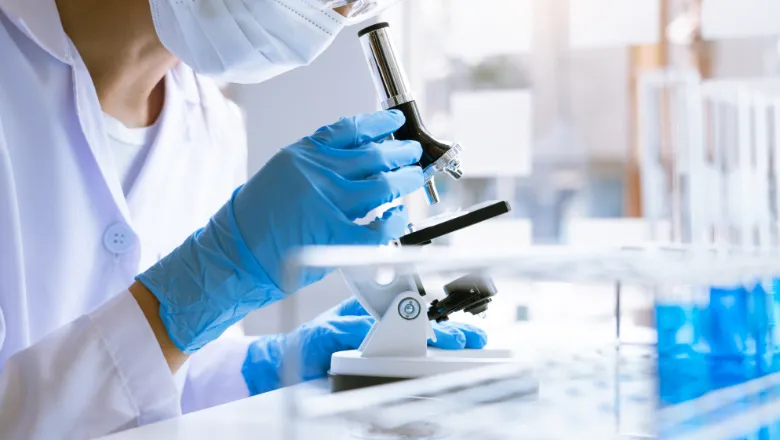
IPS colleagues win major awards at international PharmSci conference
The awards included the Academy of Pharmaceutical Sciences' (APS) Science and Emerging Scientist awards alongside multiple invited podiums and poster...
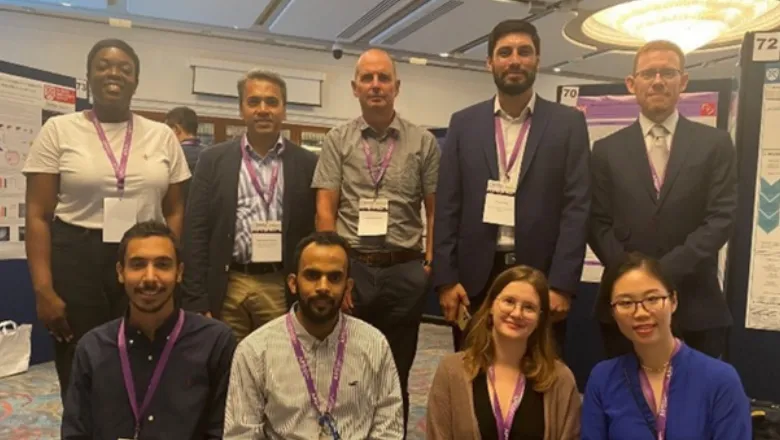
King's joins forces with Fight the Fakes to speak out against substandard and falsified medicines
King’s has joined the Fight the Fakes (FTF) campaign to raise awareness against the dangers of substandard and falsified medicines.
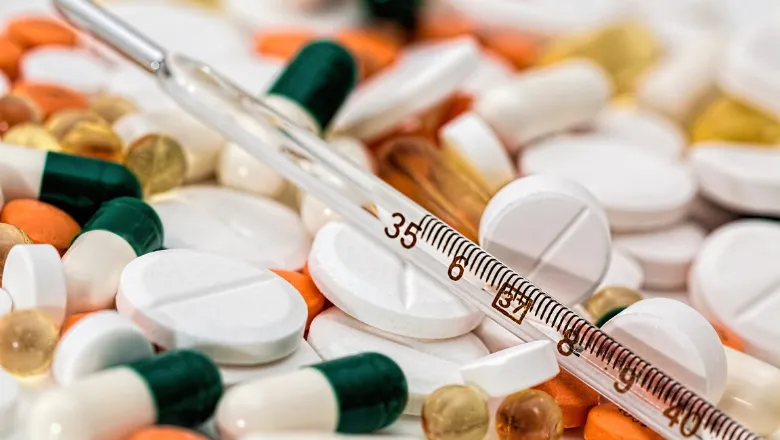
Features
Humanising Healthcare podcast - 'Fake Medicines'
In this episode, Fake Medicines, Dr Manasi Nandi is joined by Dr Godwin Aleku and Dr Bahijja Raimi-Abraham.

International Women's Day 2023: Three female role models using technology to improve society
The theme for International Women’s Day 2023 is “DigitALL: Innovation and technology for gender equality.” Its goal is to recognise and celebrate the women...

5 minutes with... Bahijja Raimi-Abraham
Dr Bahijja Raimi-Abraham is a Lecturer in Pharmaceutics in the School of Cancer & Pharmaceutical Sciences and founder of King's Fight the Fakes. We took 5...

Research

Medicines Development
The Medicines Development Research Group develops novel materials, formulations, drug delivery devices, manufacturing, analytical, and digital technologies.

Antimicrobial Research Theme
Antimicrobial Research Theme

Microbes in Health & Disease
The Microbes in Health & Diseases Research Interest Group aims to foster collaboration across departments and faculties at KCL to explore the multifaceted role microbes play in health and disease.

School of Cancer & Pharmaceutical Sciences: People and Culture
The School of Cancer and Pharmaceutical Science People and Culture committee is committed to fostering an equitable, diverse, and inclusive research and education environment, where everyone can thrive. We strive to support and empower members of our community, by promoting accessibility, representation, and a culture of belonging. Through advocacy, education, and meaningful action, we aim to remove barriers, address systemic inequities, and create opportunities for our whole community to contribute and succeed

Translational Research & Innovation in Microbial Sciences (TRIMS) - King’s Prize Doctoral Programme
This PhD programme is designed to tackle microbial challenges through cutting-edge technological innovation, fundamental and applied science with translational impact.

Organoids Research Interest Group (ORIG)
Organoids are 3D, miniature versions of organs grown from stem cells. They replicate organ structure and function, making them essential for studying tissue homeostasis, disease mechanisms, and developing new therapies. This research interest group encompasses all organoid-related research at King’s College London.
News
Mini liver model innovations promise more effective drug testing
A laboratory-grown mini liver model uniquely created with liver cells and a synthetic nanoscaffold has shown to be effective in mimicking the liver, promising...

IPS colleagues win major awards at international PharmSci conference
The awards included the Academy of Pharmaceutical Sciences' (APS) Science and Emerging Scientist awards alongside multiple invited podiums and poster...

King's joins forces with Fight the Fakes to speak out against substandard and falsified medicines
King’s has joined the Fight the Fakes (FTF) campaign to raise awareness against the dangers of substandard and falsified medicines.

Features
Humanising Healthcare podcast - 'Fake Medicines'
In this episode, Fake Medicines, Dr Manasi Nandi is joined by Dr Godwin Aleku and Dr Bahijja Raimi-Abraham.

International Women's Day 2023: Three female role models using technology to improve society
The theme for International Women’s Day 2023 is “DigitALL: Innovation and technology for gender equality.” Its goal is to recognise and celebrate the women...

5 minutes with... Bahijja Raimi-Abraham
Dr Bahijja Raimi-Abraham is a Lecturer in Pharmaceutics in the School of Cancer & Pharmaceutical Sciences and founder of King's Fight the Fakes. We took 5...

